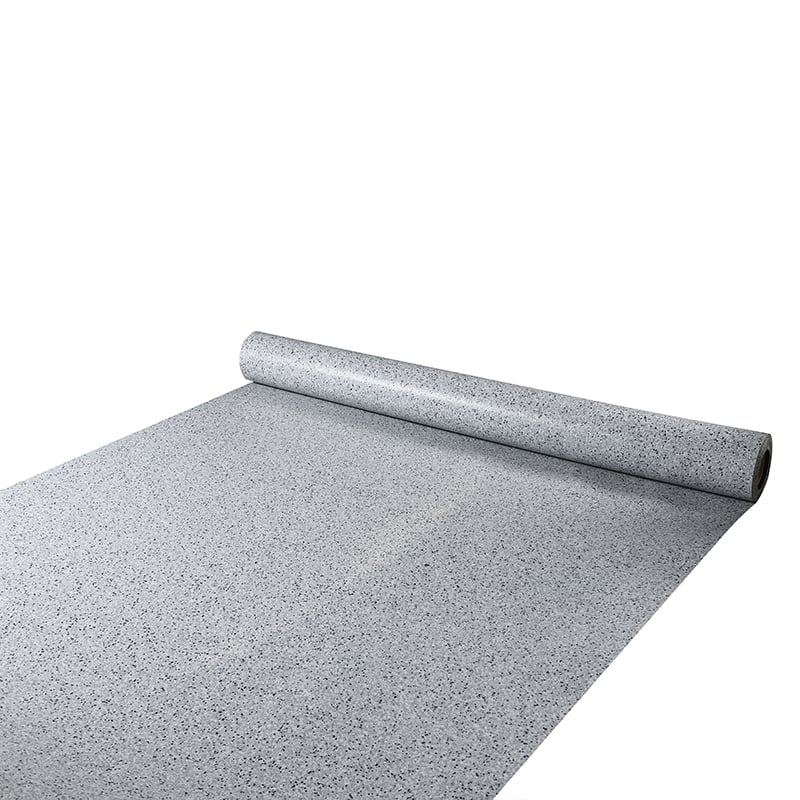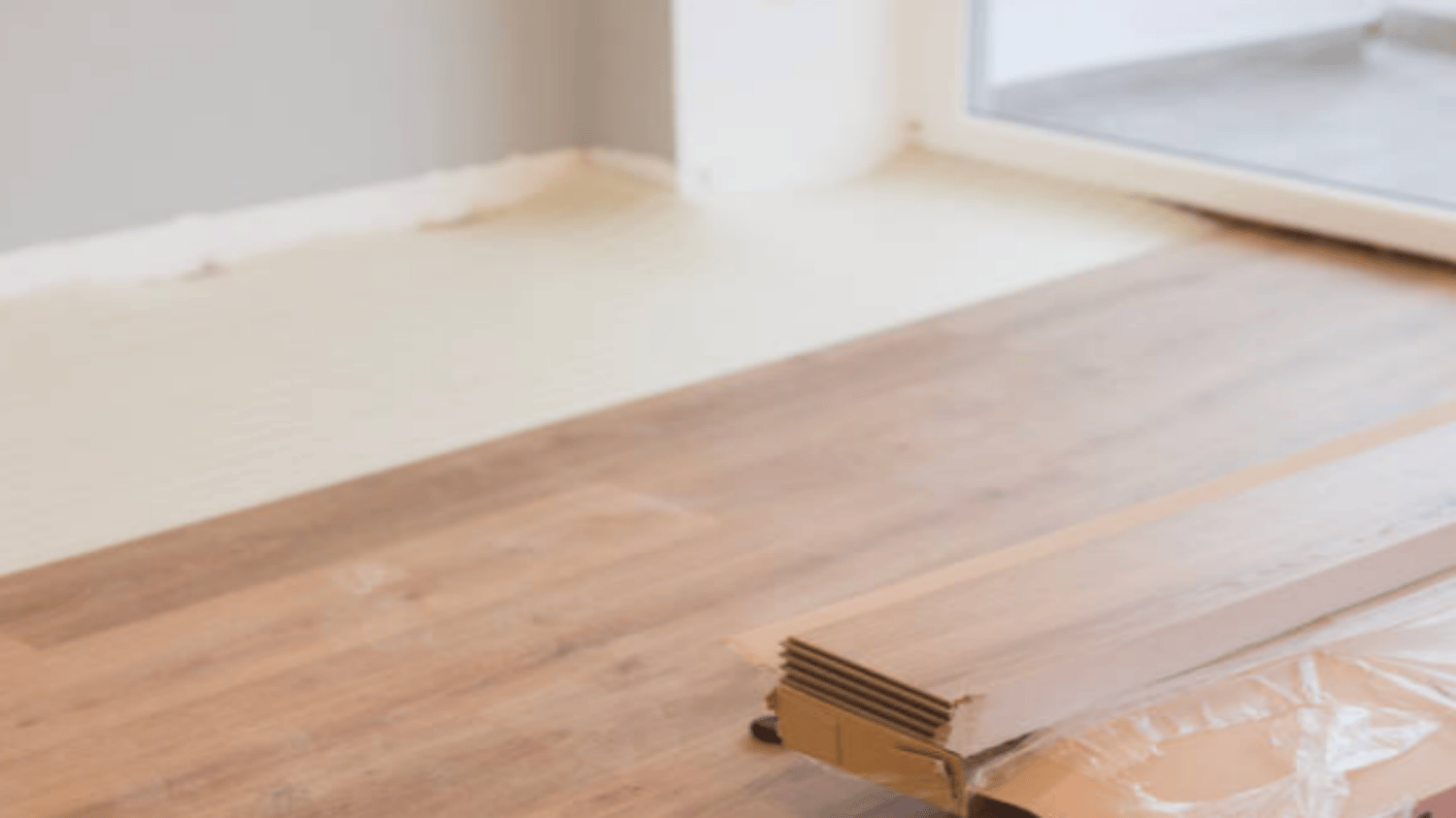Waterproof flooring is an excellent choice for homeowners seeking durability, easy maintenance, and resistance to water and moisture. Whether you're renovating your kitchen, bathroom, or basement, selecting the right waterproof flooring material can enhance the beauty and functionality of your space.
This guide explores various waterproof flooring options, their benefits, and how they can improve your home's overall quality.
What is waterproof flooring

Waterproof flooring is a type of surface designed to resist damage caused by moisture and water exposure. It is ideal for areas such as bathrooms, kitchens, and basements. This blog will explore its numerous benefits and provide insights into various waterproof flooring materials.
Flooring Materials Bulk Purchase
How Waterproof Flooring Improves Your Life

Durability and Longevity
One of the key advantages of waterproof flooring is its exceptional durability and longevity. Unlike traditional options such as hardwood or carpet, waterproof flooring is highly resistant to scratches, stains, and wear-and-tear. With proper care and maintenance, waterproof floors can provide years of use, making them a cost-effective option for homeowners.
Water and Moisture Resistance
As its name implies, waterproof flooring's primary advantage lies in its resistance to water and moisture. This feature is particularly valuable in areas prone to spills, leaks, or high humidity levels. Unlike other flooring materials, waterproof flooring will not warp, buckle, or swell when exposed to liquid. It provides an efficient barrier that stops liquid seepage through to subfloor levels, decreasing the risk of mold and mildew growth.
Easy Maintenance
Waterproof flooring stands out in terms of ease of maintenance. Unlike carpets that require regular vacuuming and deep cleaning or hardwood floors that need polishing and refinishing, waterproof flooring simplifies cleaning. Spills can be quickly mopped up using a damp cloth or mop, leaving floors looking spotlessly clean. This low-maintenance feature is especially convenient for busy households or individuals living with pets and children.
Aesthetic Appeal
Waterproof flooring comes in various styles, colors, and textures, allowing homeowners to find something aesthetically pleasing. Whether you prefer the timeless elegance of hardwood, the chic look of tile, the coziness of carpet, or sleek modern designs, waterproof floors can complement every interior decor style. Thanks to recent advancements, waterproof floors can now even emulate natural materials without the associated maintenance needs or risk of water damage.
Improved Indoor Air Quality (IAQ)
Indoor air quality is a significant concern, especially for those with allergies or respiratory conditions. Waterproof flooring helps improve IAQ by not trapping dust mites, allergens, or pet dander like carpet does. Additionally, it resists mold and mildew growth, which can produce airborne spores that trigger allergies or respiratory issues. Choosing waterproof flooring creates a healthier living space for you and your family.
Resistance to Impact
Waterproof flooring is known for its incredible resistance to impact, making it ideal for homes with heavy furniture or high foot traffic. It can withstand the weight of furniture and the activities of children and pets without denting or scratching. This durability ensures that your floors remain in great shape despite daily wear and tear, saving you money and headaches in terms of repairs.
Installation Options
Homeowners have various installation options when selecting waterproof flooring. Luxury vinyl planks and tiles can be laid directly atop existing subfloor without adhesives, while other options can be installed over radiant heating systems to provide extra warmth during colder months. These flexible installation options make waterproof flooring a convenient choice for various home environments.
Cost-Effectiveness
While waterproof flooring may initially cost more than traditional options, its long-term savings far outweigh these initial expenses. Its durability and resistance to damage mean that homeowners won’t need to replace or repair their floors as often. Additionally, its reduced maintenance requirements save time and money on cleaning products and professional services, making waterproof flooring a cost-effective long-term solution.
Environmental Considerations
Many types of waterproof flooring, such as luxury vinyl and laminate, are made with recycled materials, reducing resource demand. Additionally, these materials often require less harsh cleaning solutions, minimizing environmental impact. By opting for waterproof flooring, you can enjoy beautiful and eco-friendly floors that align with your environmental values.
Waterproof Flooring Options

When it comes to choosing waterproof flooring, there are several excellent options available. Each type offers unique benefits and can be tailored to meet specific needs and aesthetic preferences. Here are some of the most popular waterproof flooring options:
1. Luxury Vinyl Planks (LVP) and Tiles (LVT)
Luxury vinyl planks (LVP) and luxury vinyl tiles (LVT) are among the most popular waterproof flooring options. They are designed to mimic the appearance of natural materials such as wood and stone, offering a high-end look without the maintenance issues associated with natural products.
-
Advantages:
- 100% waterproof
- Highly durable and resistant to scratches, stains, and dents
- Easy to install, often featuring click-lock systems
- Available in a wide range of styles and colors
- Comfortable underfoot and compatible with radiant heating systems
2. Waterproof Laminate Flooring
Waterproof laminate flooring combines the aesthetic appeal of traditional laminate with enhanced moisture resistance. This type of flooring features a protective top layer that prevents water from seeping into the core.
-
Advantages:
- Waterproof core prevents swelling and warping
- Resembles the look of hardwood or stone
- Easy to install with click-lock systems
- Cost-effective alternative to hardwood
- Resistant to scratches and fading
3. Ceramic and Porcelain Tiles
Ceramic and porcelain tiles are classic choices for waterproof flooring, particularly in bathrooms and kitchens. These tiles are made from clay and fired at high temperatures, making them highly resistant to water and humidity.
-
Advantages:
- Completely waterproof and impervious to moisture
- Extremely durable and long-lasting
- Available in a wide variety of colors, patterns, and textures
- Easy to clean and maintain
- Ideal for underfloor heating systems
4. Waterproof Carpet
Waterproof carpet is a relatively new innovation that combines the comfort of traditional carpet with the practicality of waterproof technology. It features a waterproof backing that prevents spills and moisture from penetrating the carpet fibers and reaching the subfloor.
-
Advantages:
- Soft and comfortable underfoot
- Provides warmth and insulation
- Resistant to stains and spills
- Available in a variety of styles and colors
- Easy to clean and maintain
5. Stone Plastic Composite (SPC) Flooring
SPC flooring is a type of rigid core luxury vinyl flooring that includes a stone-plastic composite core, making it highly durable and waterproof. It’s an excellent choice for high-traffic areas and commercial spaces.
-
Advantages:
- 100% waterproof
- Extremely durable and resistant to dents and scratches
- Stable in varying temperature and humidity conditions
- Easy to install with click-lock systems
- Realistic wood and stone looks
6. Wood Plastic Composite (WPC) Flooring
WPC flooring is similar to SPC flooring but includes a wood-plastic composite core. It offers a softer feel underfoot and excellent water resistance, making it a popular choice for residential spaces.
-
Advantages:
- Waterproof and resistant to spills and moisture
- Softer and more comfortable underfoot than traditional vinyl
- Easy to install with click-lock systems
- Excellent thermal and sound insulation
- Available in a wide range of designs and colors
FAQ: Waterproof Flooring Materials
1. What are the most common types of waterproof flooring materials?
Common waterproof flooring materials include luxury vinyl planks (LVP), luxury vinyl tiles (LVT), waterproof laminate, ceramic and porcelain tiles, and waterproof carpet.
2. How does waterproof flooring improve indoor air quality?
Waterproof flooring improves indoor air quality by not trapping dust mites, allergens, or pet dander like carpets do. Additionally, it resists mold and mildew growth, which can produce airborne spores that trigger allergies and respiratory issues.
3. Can waterproof flooring be installed over radiant heating systems?
Yes, many types of waterproof flooring, such as luxury vinyl planks and tiles, can be installed over radiant heating systems. This provides extra warmth and comfort during colder months.
4. Is waterproof flooring suitable for high-traffic areas?
Yes, waterproof flooring is highly durable and resistant to impact, making it suitable for high-traffic areas. It can withstand the weight of heavy furniture and the activities of children and pets without denting or scratching.
5. How do I clean and maintain waterproof flooring?
Cleaning and maintaining waterproof flooring is simple. Spills can be quickly mopped up using a damp cloth or mop. Regular sweeping or vacuuming can help remove dust and debris. Unlike hardwood floors, waterproof flooring does not require polishing or refinishing.
6. Is waterproof flooring eco-friendly?
Many waterproof flooring options, such as luxury vinyl and laminate, are made with recycled materials, reducing resource demand. Additionally, these materials often require less harsh cleaning solutions, minimizing environmental impact.
7. How does waterproof flooring prevent mold and mildew growth?
Waterproof flooring provides an efficient barrier that stops liquid seepage through to subfloor levels. This reduces the risk of mold and mildew growth, which thrive in moist environments.
8. What are the aesthetic options available for waterproof flooring?
Waterproof flooring comes in a wide range of styles, colors, and textures. Recent advancements allow these floors to emulate natural materials such as wood and stone, providing aesthetic versatility without the associated maintenance needs.
9. Is waterproof flooring more expensive than traditional flooring options?
While waterproof flooring may have a higher upfront cost than some traditional flooring options, its long-term durability and reduced maintenance requirements can lead to significant savings over time.
10. Can waterproof flooring be used in every room of the house?
Yes, waterproof flooring is versatile and can be used in every room of the house, including high-moisture areas such as bathrooms, kitchens, and basements.
Conclusion

Water-resistant flooring offers numerous benefits, including durability, water resistance, easy maintenance, aesthetic versatility, improved indoor air quality, and environmental friendliness. With various styles and installation options, it is a practical and cost-effective choice for any home. By investing in waterproof flooring, homeowners can enjoy long-lasting, beautiful, and low-maintenance floors that enhance the overall quality and comfort of their living spaces.

